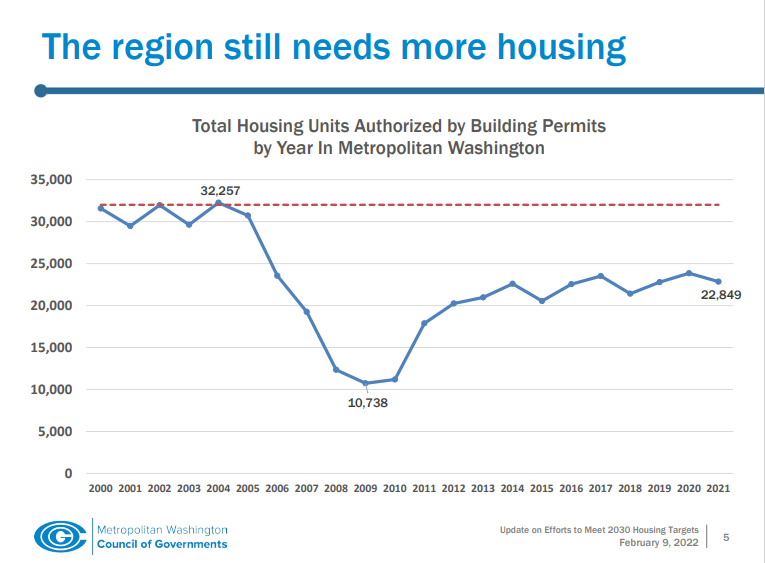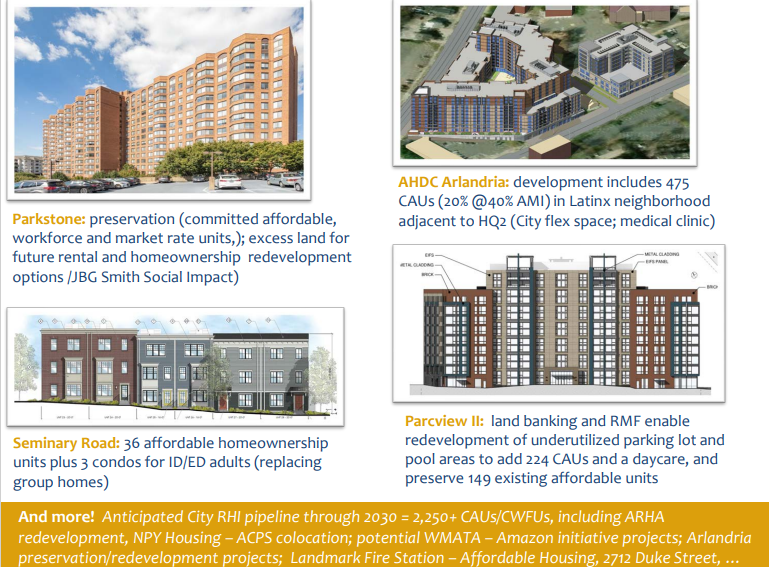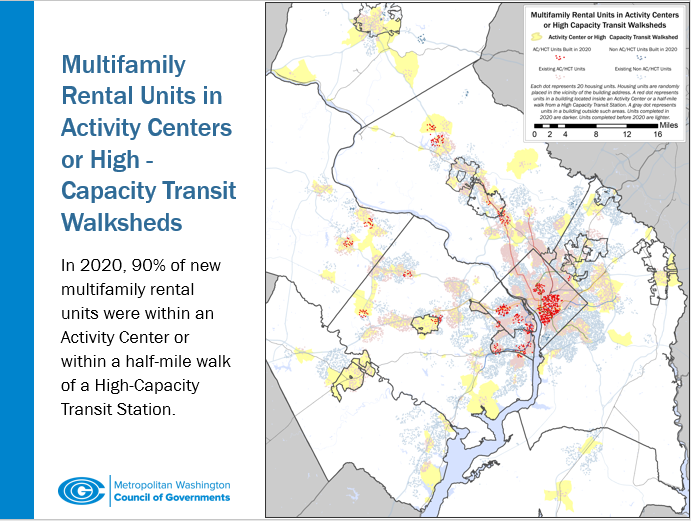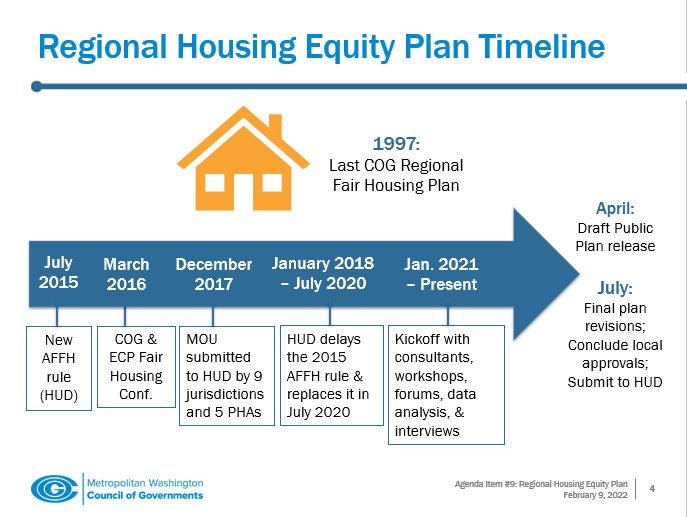In the two years since the region’s officials adopted shared Regional Housing Targets for production, affordability, and location near transit, local governments have been working to increase housing options, despite setbacks caused by COVID-19.
The Metropolitan Washington Council of Governments (COG) Board of Directors discussed some of that progress at its February meeting focused entirely on housing.

According to COG’s analysis, the region is not producing the housing needed to meet its 2030 housing goals.
While Prince George’s County is often seen as having more affordably priced housing than the rest of the region, it’s an asset that is disappearing, said Angie Rodgers, Prince George’s County Deputy Chief Administrative Officer for Economic Development. For this reason, county officials took cues from the 2030 Regional Housing Targets and set their own targets for affordable housing production and preservation as part of the county’s economic development plan.
In remarks to the board, Rodgers repeated a mantra of County Executive Angela Alsobrooks explaining why the economic development plan is about more than commercial growth: “We do not get to have quality economic development without affordable housing.”
With 498 square miles of land for potential development, the county is anchoring its vision for the county along the Metro’s Blue Line, where they are focused on creating, “dense, multi-modal, amenity-rich” destinations, she said.
In March 2020, the City of Alexandria adopted a resolution endorsing the Regional Housing Targets and adjusted their own production targets accordingly.
“COG has been an essential, indispensable convener of dealing with this issue, in that it is a regional issue,” City of Alexandria Mayor Justin Wilson told his counterparts on the COG Board, “This is not an issue any one of us can solve on our own.”
Although COVID-19 required that the city pivot to focus on emergency housing needs, city leaders have also been working to enhance their housing “toolbox” so they can continue moving forward. For example, by adding accessory dwelling unit and co-living ordinances to the city zoning code. And, the city continues to look for opportunities to leverage non-city resources for housing production, working alongside JBG Smith through its Social Impact Pool of the Washington Housing Initiative, the Amazon Housing Equity Fund, and other partners on preservation and redevelopment projects.

Projects in Alexandria’s Housing Initiative pipeline.
The District of Columbia and Montgomery County have also taken actions that contribute to the Regional Housing Targets, while many other jurisdictions continue to work innovatively within their own plans and constraints to create and preserve affordably priced housing. For example, recently the Fairfax County Board of Supervisors approved financial support for 175 units of affordable housing at Tysons Corner and are convening a Manufactured Homes Task Force to better understand and address needs of residents in mobile home parks along Route 1, which is being redeveloped.
Meanwhile, COG reported that construction of new multifamily rental units was down slightly in 2020 (14,269 units), according to its Multifamily Rental Housing Construction Indicators Report. Although this does not get the region any closer to its goals for housing production, one data point was very promising. Of all new units built in 2020, nearly 90 percent were built within an Activity Center or within a half-mile walk of a High-Capacity Transit Station (HCT), exceeding the 75 percent target set by the COG Board.

Because housing continues to be so central to a successful future for the region, the COG Board has folded the Regional Housing Targets into its new Metropolitan Washington Planning Framework for 2030, making it a planning priority along with equity, transit and land use, and climate change. COG is focused on helping its members turn these priorities into action.
One way COG is helping to accelerate action on housing is through its new Housing Affordability Planning Program (HAPP), made possible by the Amazon Housing Equity Fund. Local jurisdictions can apply through March 23 for small, flexible grants of up to $75,000 to assist with a variety of housing (rental and ownership) pre-development, project implementation activities, or housing policy studies that have the potential to increase the amount of housing opportunities near transit for lower income families. COG also helped commission and has been promoting a messaging playbook for area leaders to encourage public support for action on housing.
In addition, COG is supporting local jurisdictions as they work together to develop a comprehensive Regional Housing Equity Plan. When complete later this year, the plan will ensure goals and strategies are in place regionwide to ensure that all residents have a choice when it comes to determining where they want to live, free from discrimination. Ordinarily jurisdictions across the region would undertake this process individually, but eight jurisdictions have opted to work collaboratively through COG for a bigger impact.

Jarrod Ewell of Enterprise Community Partners, who serves on the housing equity project team, commended the governments participating in the effort.
“The regional commitment to collaboration that recognized that fair housing issues like segregation, access to opportunity, and housing needs does not end at jurisdictional boundaries,” he said. “In fact, local policies can counteract or exacerbate challenges in neighboring jurisdictions.”